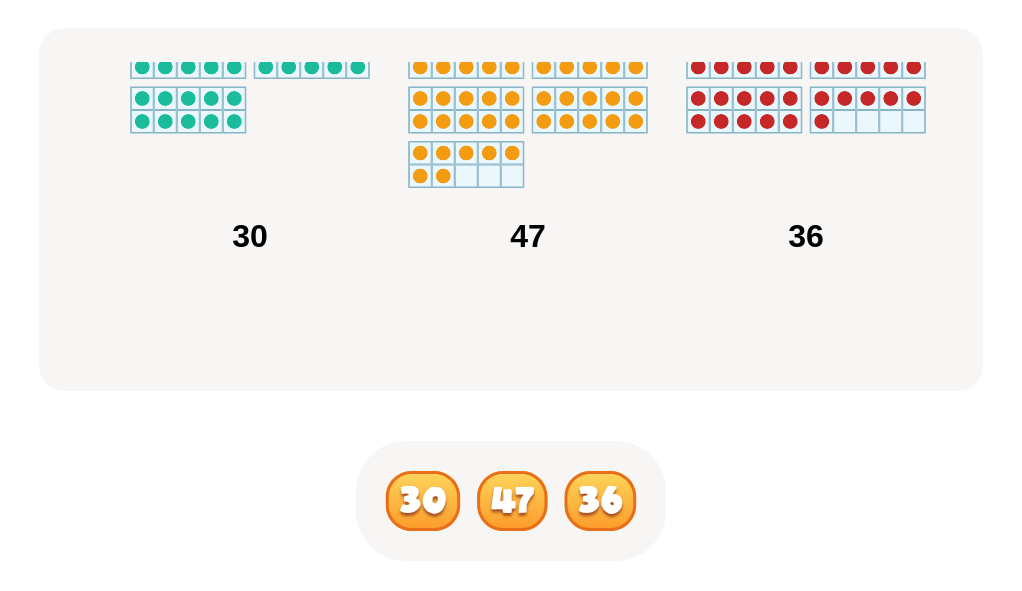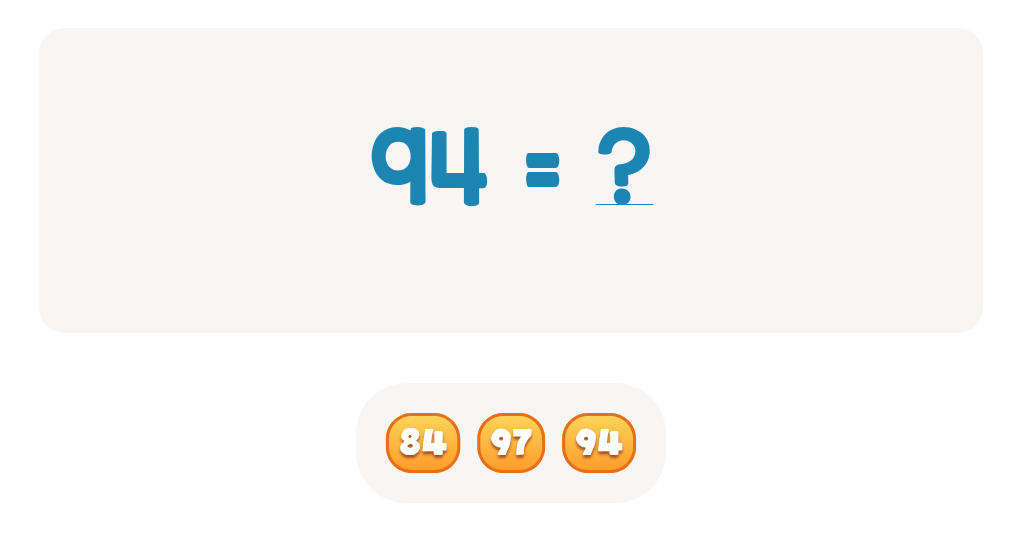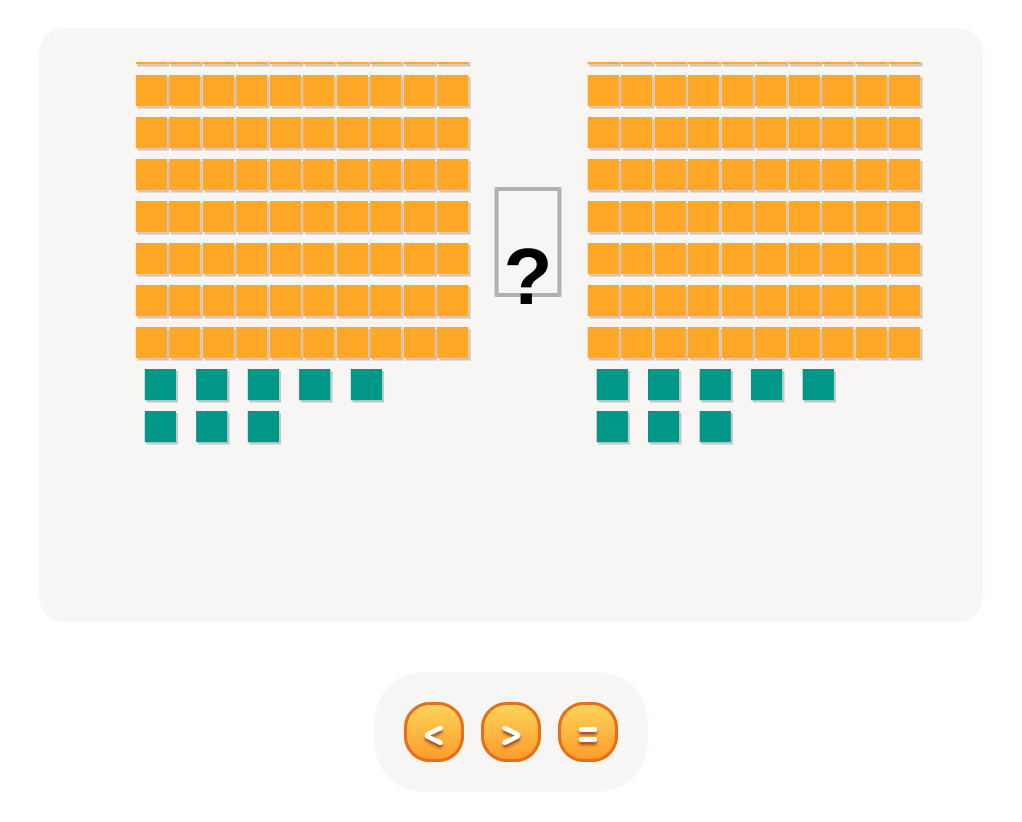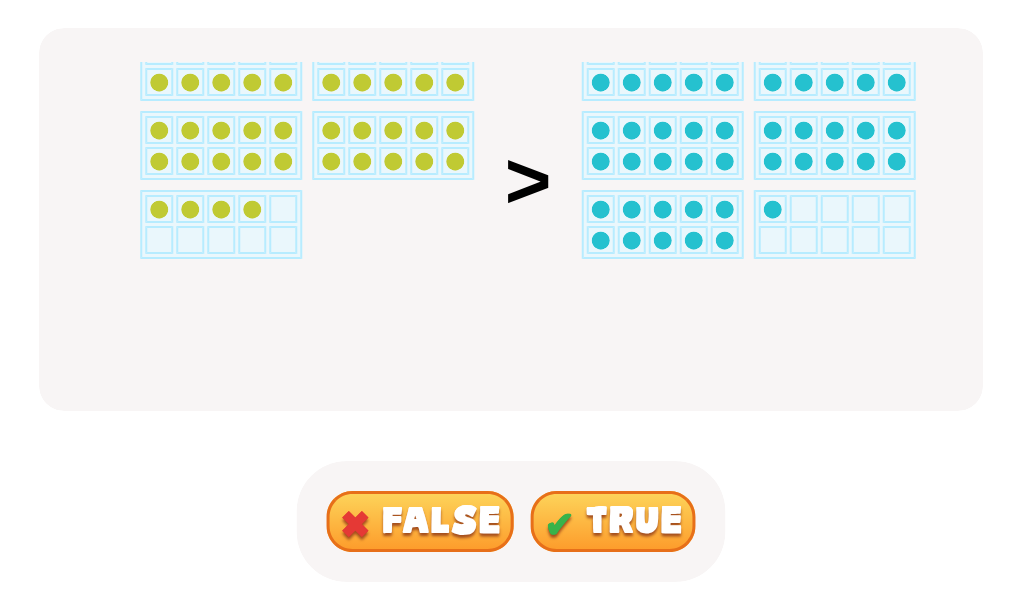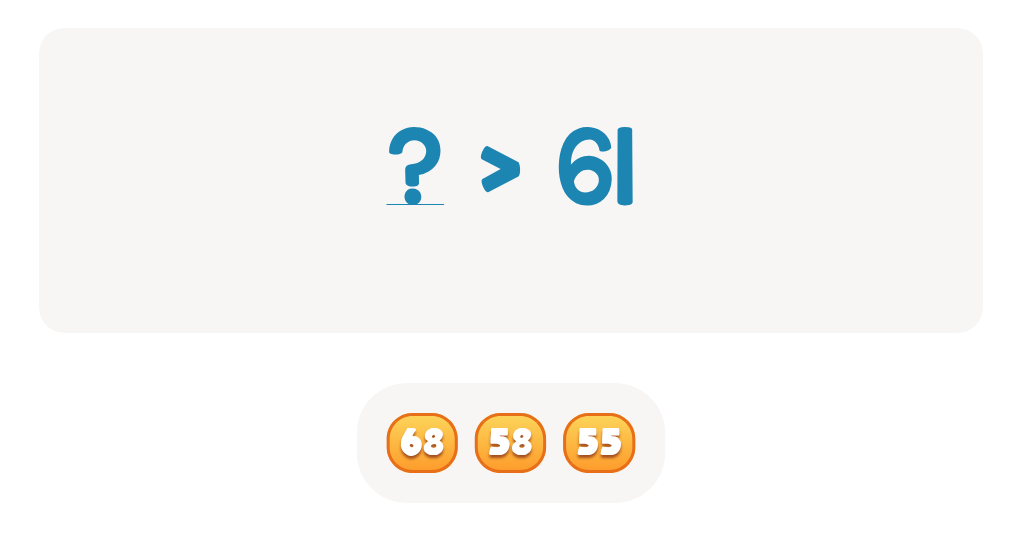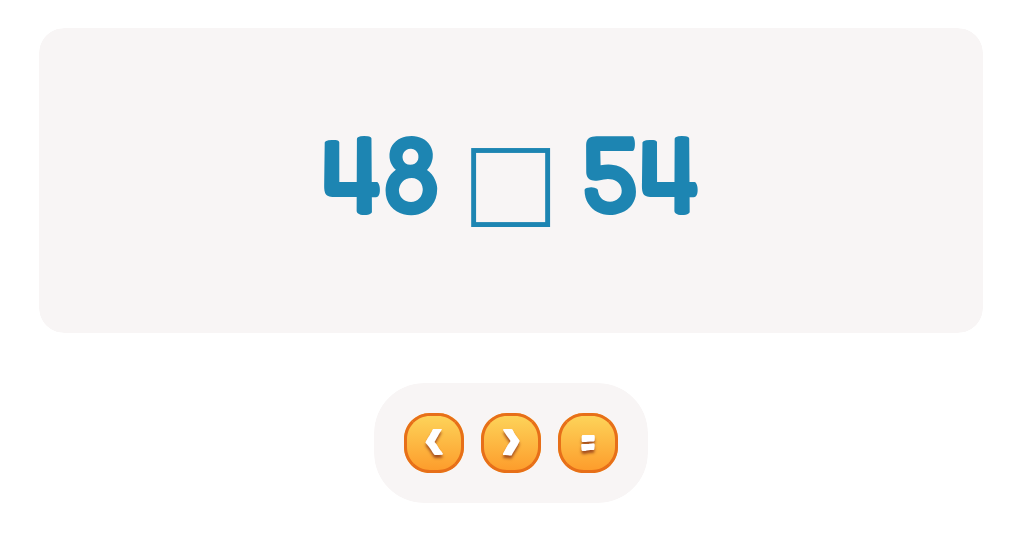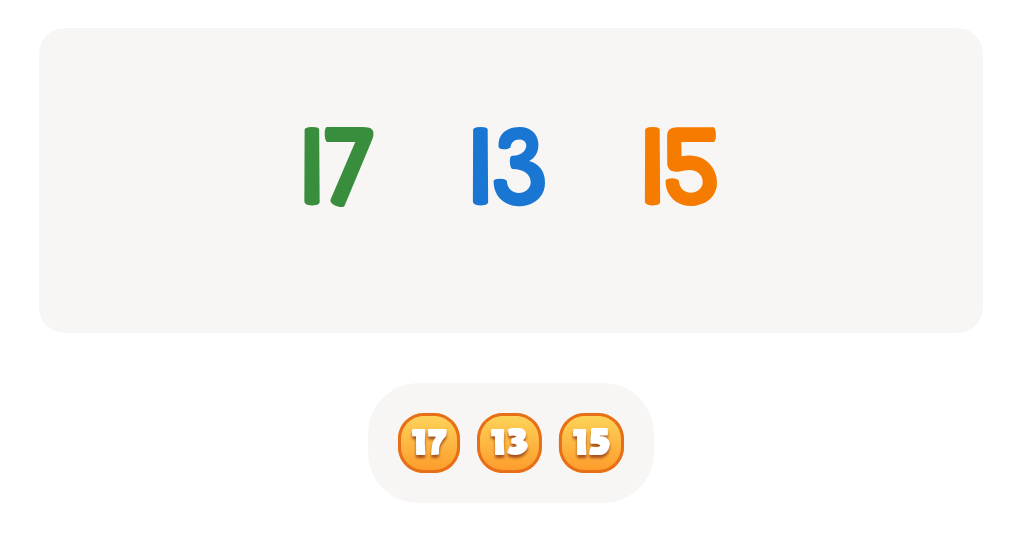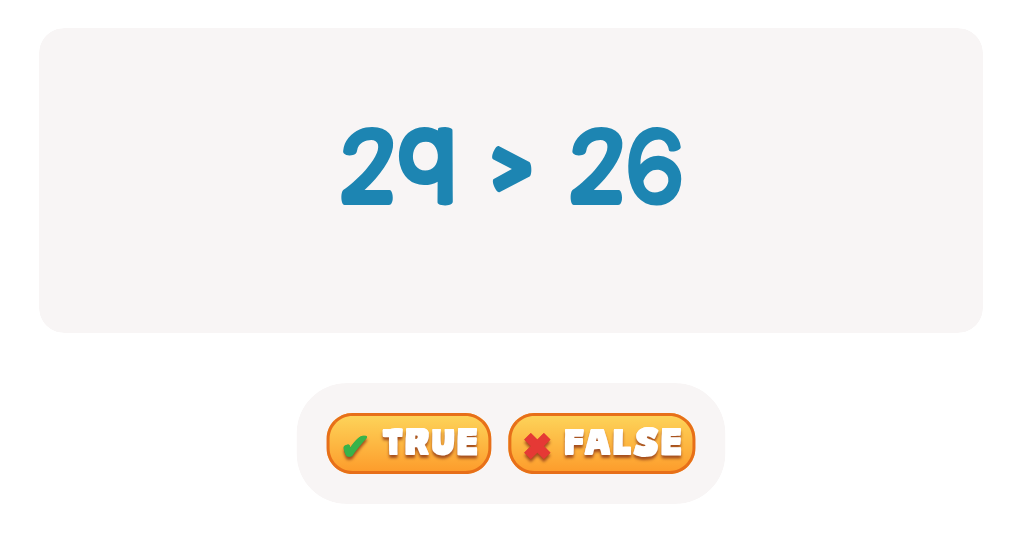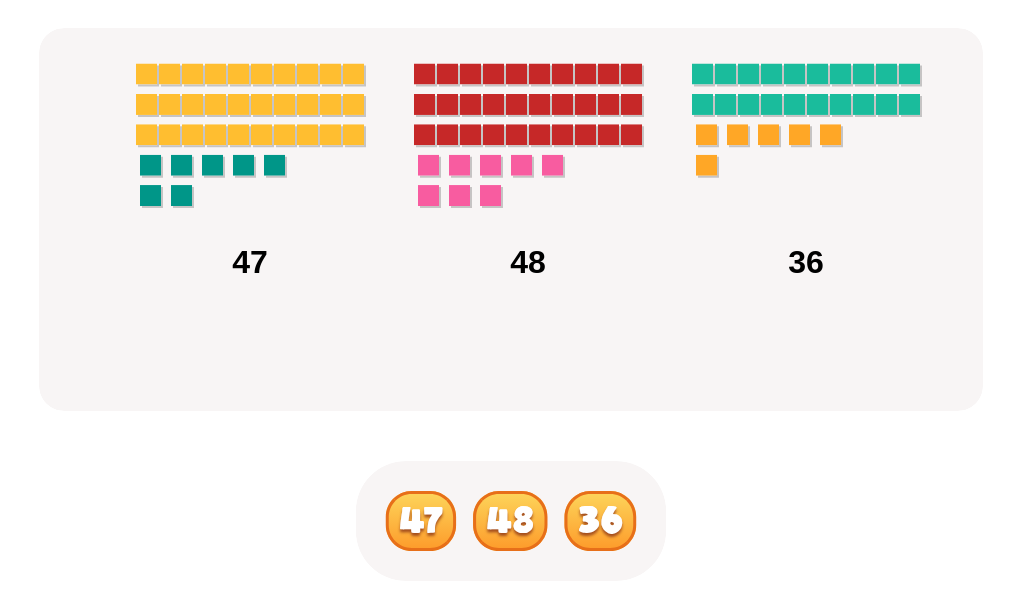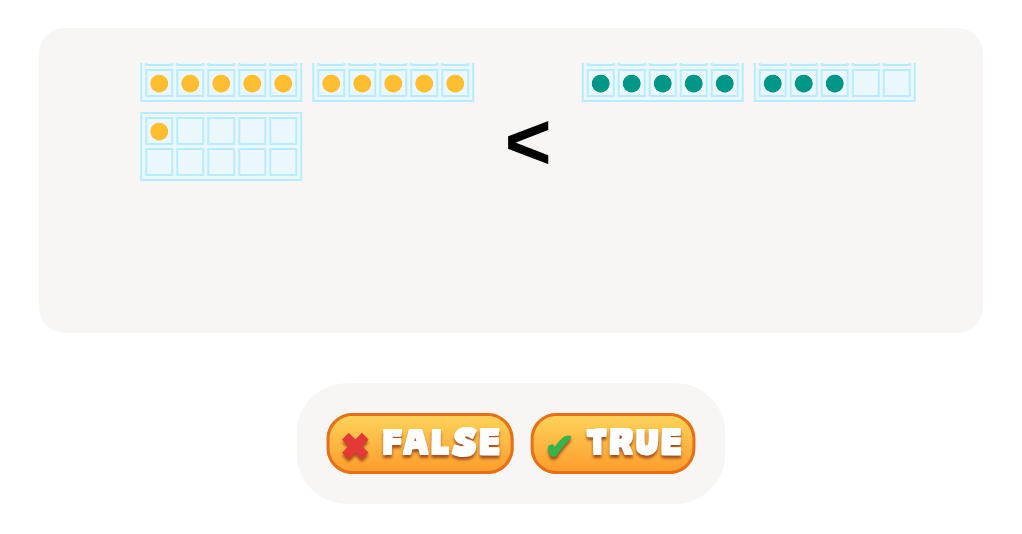Comparing quantities Comparing Numbers Worksheets for Ages 4-9
3 filtered results
-
From - To
Boost your child's math skills with our "Comparing Quantities: Comparing Numbers Worksheets for Ages 4-9." These engaging and interactive worksheets are designed to help young learners master the concept of comparing numbers and quantities through fun activities and exercises. Perfect for children aged 4-9, these printables will develop their understanding of greater than, less than, and equal to, while enhancing critical thinking and problem-solving abilities. Developed by education experts, our worksheets are an ideal resource for both classroom and home learning. Equip your child with the tools they need for math success today!
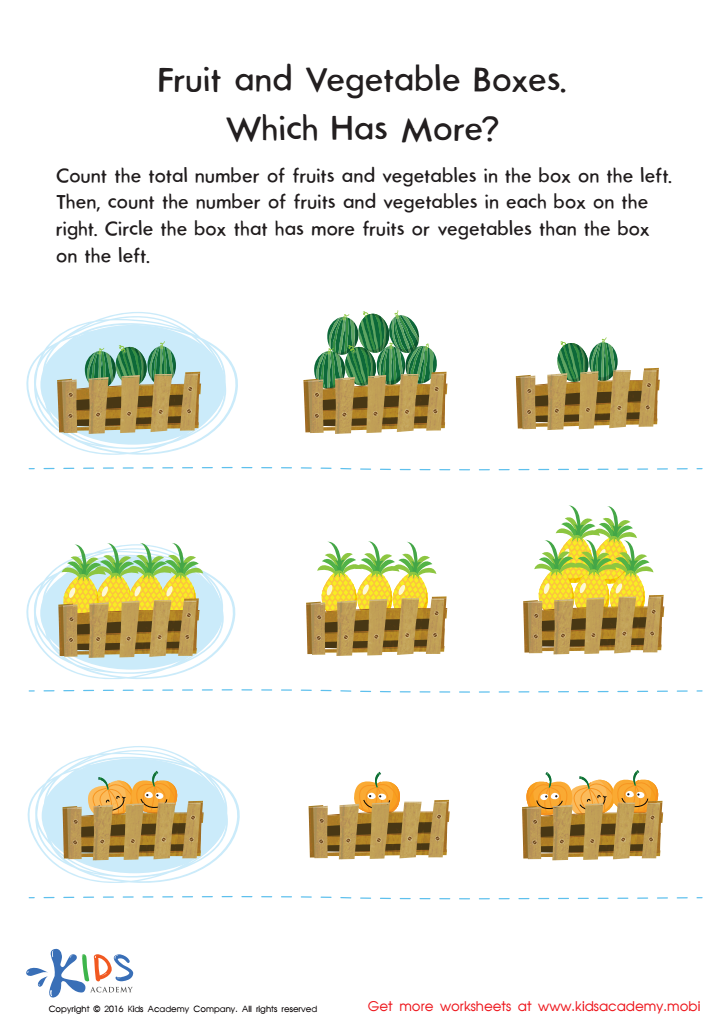

Which Has More? Size Worksheet
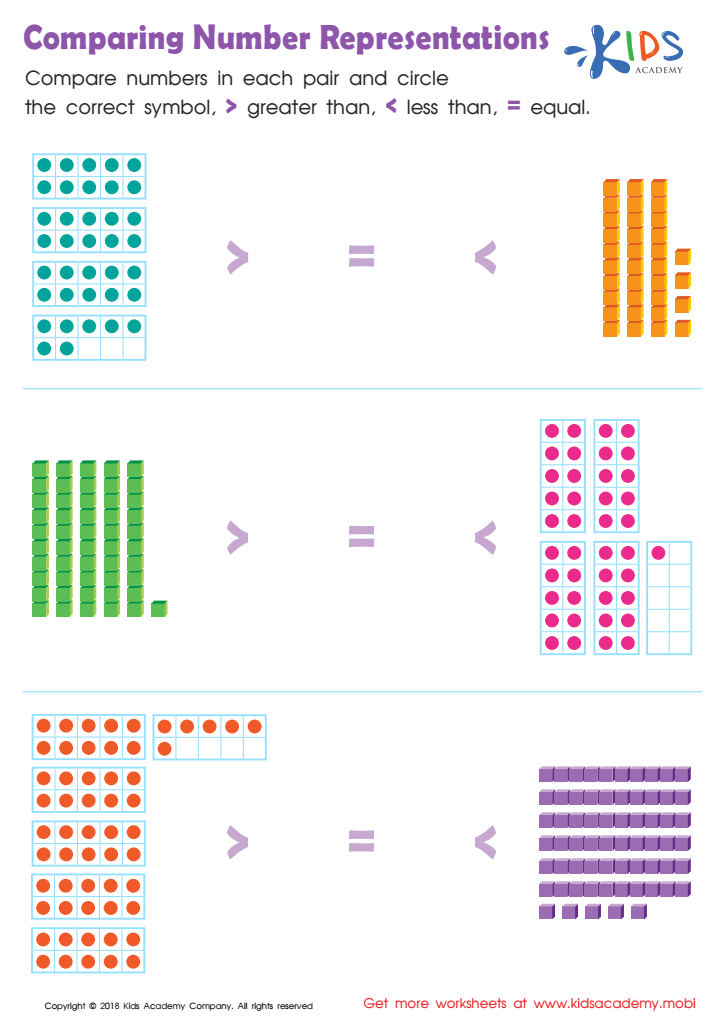

Comparing Number Representations Worksheet
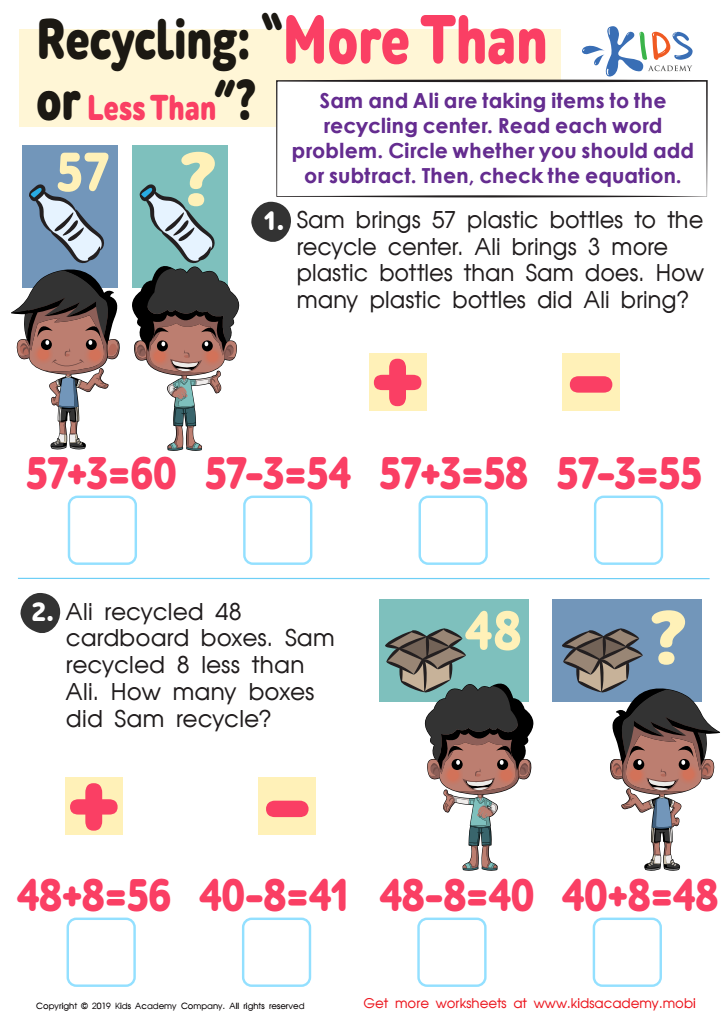

Recycling - More or Less Worksheet
Parents and teachers should focus on teaching children between the ages of 4 and 9 to compare quantities and numbers because it lays the foundational blocks for essential mathematical skills. During these formative years, children are developing critical thinking and problem-solving abilities. Understanding how to compare quantities and numbers helps them grasp essential concepts like more than, less than, and equal to, which are fundamental in basic arithmetic operations such as addition, subtraction, and even early algebra.
Comparing quantities nurtures number sense, a critical predictor of future math achievement. When children practice comparing objects or numbers, they learn to recognize patterns, understand sequences, and develop logical reasoning skills. These activities enhance cognitive development and improve their capacity to process numerical information quickly and accurately.
Moreover, these early math skills are directly linked to academic success across other subjects. Strong math foundations support learning in science, technology, and even language arts, as mathematical thinking involves logic and reasoning that are valuable in comprehending complex textual information.
Finally, fostering a positive relationship with math early on helps children gain confidence in their abilities, reducing math anxiety later in life. Engaging students in fun and interactive ways to compare quantities and numbers can spark a lifelong interest in learning and a positive attitude towards challenges and problems, which benefits their overall academic and personal development.
 Assign to My Students
Assign to My Students
